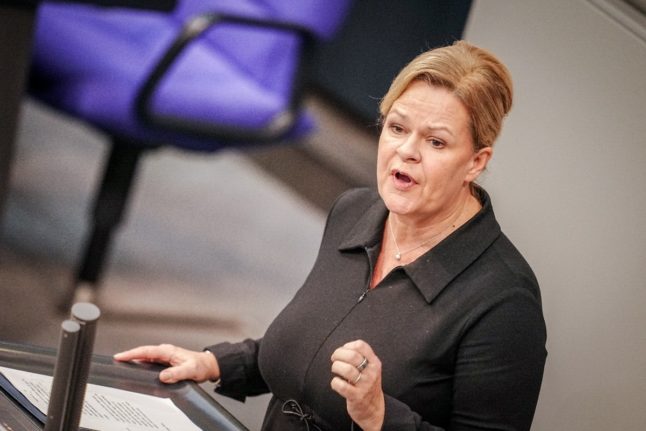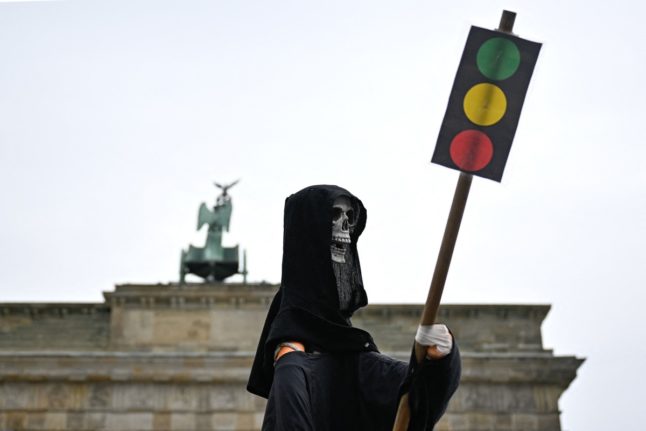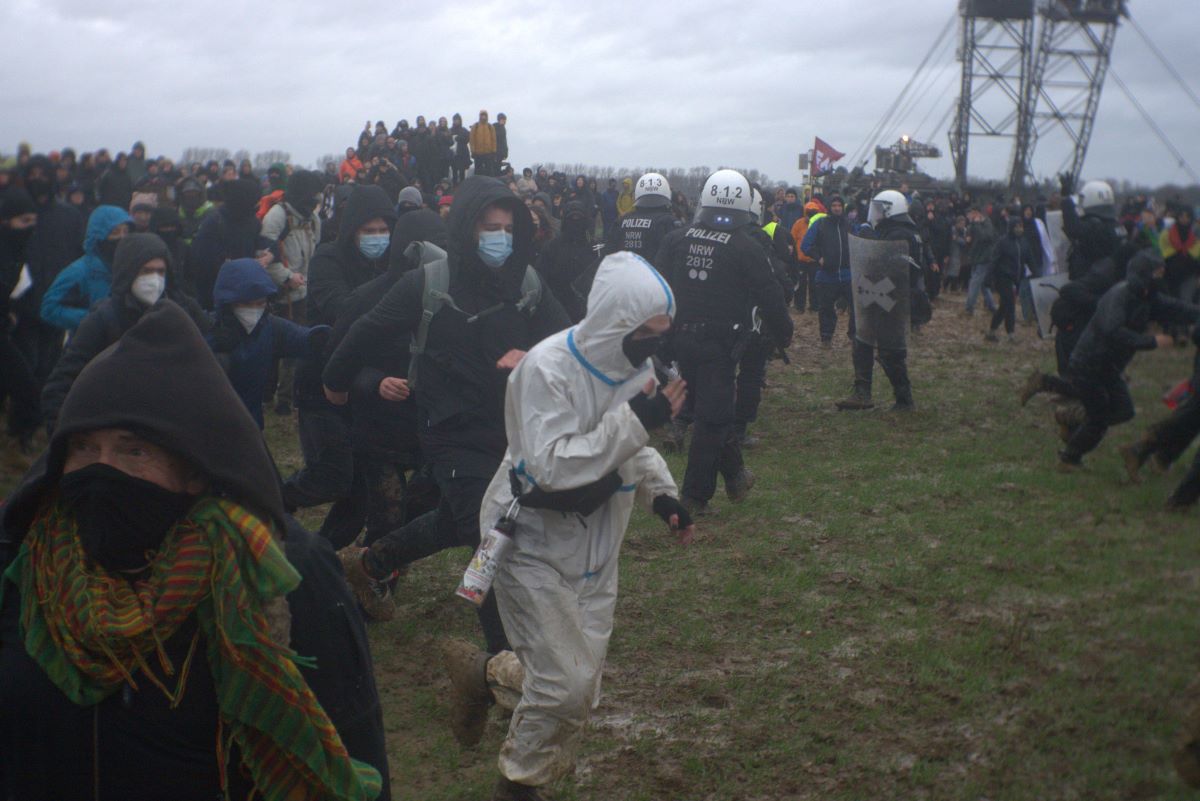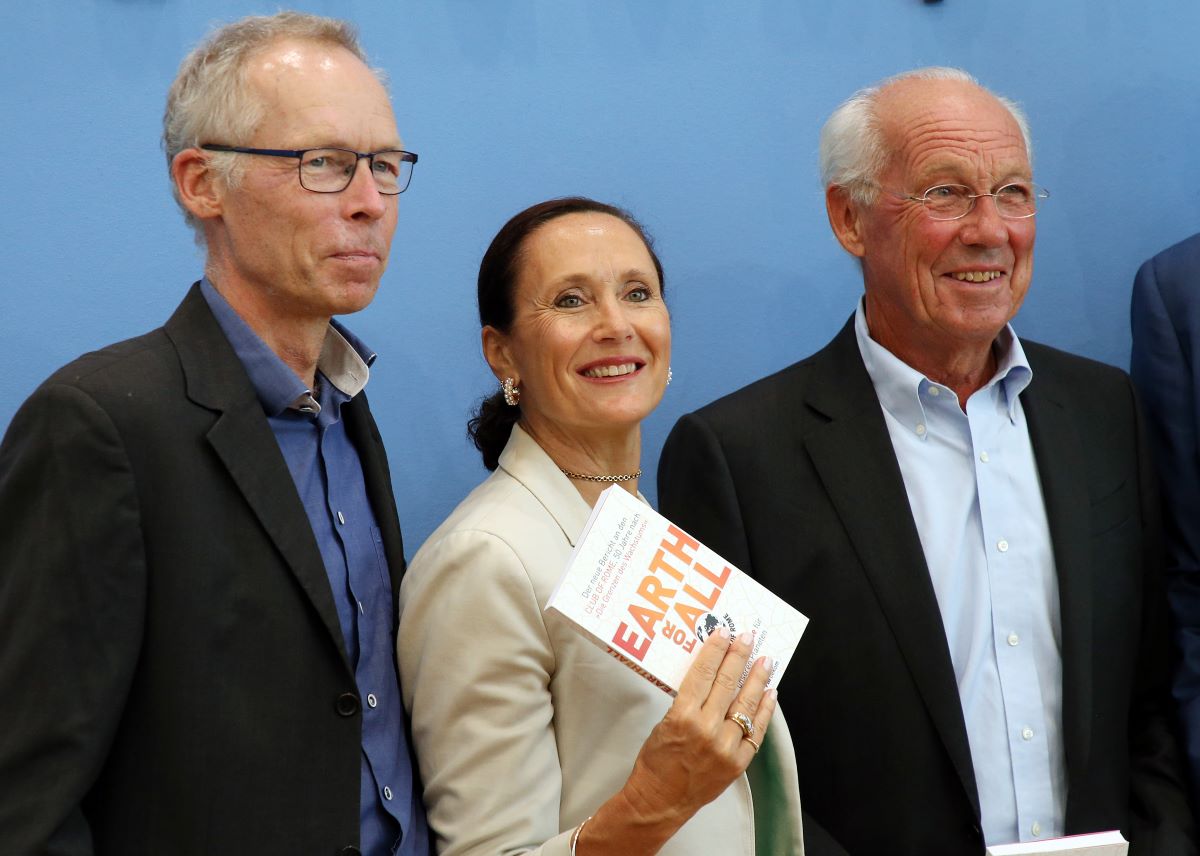As a bitter migration debate roils the country and the far-right AfD hits new heights in the polls, Olaf Scholz’s unpopular centre-left-led government championed the measures as a means of curbing new arrivals.
“We will ensure that people without the right to stay will have to leave our country faster,” Interior Minister Nancy Faeser said of the draft law “to improve repatriations” on Thursday.
Faeser said sending those without a right to asylum back to their countries of origin would free up resources for those most in need of refuge.
The tough measures give the police new powers to search for those ordered to leave the country and to establish the identity of migrants.
In addition the maximum amount of time people may be held in pre-expulsion detention will increase to 28 days from 10 currently to allow authorities more time to organise deportations.
Rights groups attacked the hardened policy as inhumane and excessive, with the Association of German Lawyers calling it “hardly in the realm of proportionality”.
“We are horrified that people who are fleeing and those who offer them humanitarian aid can be threatened with prison sentences,” sea rescue group SOS Humanity said.
The legislation sets out tougher penalties for people-smuggling, whether or not the helpers are paid.
However it includes language limiting prosecution to assistance on land, which the coalition says will exempt NGOS that aid migrants at sea — a claim some charities dispute.
The government estimates the bundle of measures will lead to an addition 600 deportations per year.
Faeser noted that firmer implementation of existing policy had last year created a 27-percent rise in deportations to 16,430.
MP Katina Schubert of the far-left Linke party accused the government of pandering to the political fringes with its harder line.
“Those who declare the small number of people who are actually obliged to leave the country to be a problem and criminalise charity sea rescues are doing the business of the extreme right,” she said.
READ ALSO: German minister warns AfD over ‘deportation’ talks row
A surge in arrivals in recent months, mainly from Syria and Afghanistan, has reignited a fierce immigration debate in Germany, with local authorities saying they are overwhelmed by the number of asylum seekers.
On the back of such concerns, the anti-migration AfD’s poll ratings have soared to around 22 percent, well ahead of Scholz’s Social Democrats at 14 percent.





 Please whitelist us to continue reading.
Please whitelist us to continue reading.
Member comments